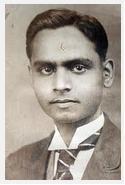Related Research Articles
Indian literature refers to the literature produced on the Indian subcontinent until 1947 and in the Republic of India thereafter. The Republic of India has 22 officially recognised languages.

Nissim Ezekiel was an Indian Jewish poet, actor, playwright, editor and art critic. He was a foundational figure in postcolonial India's literary history, specifically for Indian Poetry in English.

Sant Tukaram Maharaj was a 17th-century Marathi Saint, Hindu sant (saint), popularly known as Tuka, Tukobaraya, Tukoba in Maharashtra. He was a Sant of Varkari sampradaya - that venerates the God Vitthal - in Maharashtra, India. He was part of the egalitarian, personalized Varkari devotionalism tradition. Sant Tukaram Maharaj is best known for his devotional poetry called Abhanga and community-oriented worship with spiritual songs known as kirtan.
Marathi literature is the body of literature of Marathi, an Indo-Aryan language spoken mainly in the Indian state of Maharashtra and written in the Devanagari and Modi script.

Arun Balkrishna Kolatkar was an Indian poet who wrote in both Marathi and English. His poems found humour in everyday matters. Kolatkar is the only Indian poet besides Kabir to be featured on the World Classics titles of New York Review of Books.
Dilip Purushottam Chitre was one of the foremost Indian poets and critics to emerge in the post Independence India. Apart from being a notable bilingual writer, writing in Marathi and English, he was also a teacher, a painter, a filmmaker and a magazine columnist.

Bal Sitaram Mardhekar was a Marathi writer who brought about a radical shift of sensibility in Marathi poetry. He was born in a town called Faizpur in the Khandesh region of Maharashtra.
Jejuri is a series of poems written by Indian poet Arun Kolatkar. Consist of 31 poetic sequence, Jejuri depicts Kolatkar's visit to Jejuri, a city in Pune, which the poet visited in 1964. It was first published in Opinion Literary Quarterly in 1974, and issued in book-form in 1976. Jejuri won the Commonwealth Poetry Prize in 1977.
The little magazine movement originated in the 1950s and 1960s in many Indian languages like Bengali, Tamil, Marathi, Hindi, Malayalam and Gujarati, in the early part of the 20th century.
Marathi poetry is a poetry written in the Marathi language, including its various dialects.
Indian English poetry is the oldest form of Indian English literature. Henry Louis Vivian Derozio is considered the first poet in the lineage of Indian English poetry followed by Rabindranath Tagore, Sri Aurobindo, Sarojini Naidu, Michael Madhusudan Dutt, and Toru Dutt, among others.
Namdeo Laxman Dhasal was a Marathi poet, writer and Dalit activist from Maharashtra, India. He was one of the founders of the Dalit Panthers in 1972, a social movement aimed at destroying caste hierarchy in Indian society. The movement was active in the 1970s and the 1980s during which time it popularised the usage of the term dalit in India. Dhasal was awarded the Padma Shri in 1999 and a Lifetime Achievement Award from the Sahitya Akademi in 2004.
Hemant Divate is a reputed Marathi poet, editor, translator and publisher based in Mumbai.
Manya Joshi is a Marathi poet based in Mumbai.
Quest is a quarterly and bimonthly Indian journal published between 1954 and 1975 and featuring 20 years of independent India’s publishing history.

One Hundred Poems of Tukaram is a 2015 book consisting of selected poems of Sant Tukaram, a prominent Varkari Sant and spiritual poet of the Bhakti, translated into English by Chandrakant Kaluram Mhatre. The book also consists of an introduction by the translator, which explores aspects like relevance of Tukaram's poetry in twenty-first century, Tukaram's life and times, Varkari movement of which Tukaram was a part and the form of Tukaram's poems amongst other things. It aims at historicising Tukaram's poetry while upholding its timeless appeal. The book covers a wide range of poems depicting the spiritual as well as worldly journey of the saint-poet who is widely hailed as one of the greatest poets from India by critics like Ramchandra Ranade and Dr. Sadanand More. Selection of poems is such that the book gives a comprehensive picture of the various phases of Sant Tukaram's life which can be generally divided into that of a family man, a recluse and the man of the masses. So far this is only the second book-length translation of Tukaram's poems in English, the other being Dilip Chitre's Says Tuka (1991).
Bombay Poets was one of the founding school of poets of Indian English literature of the post-independence era, consisting of both prose and verse. It was located in the geographical located in Bombay. Several members of the same are credited with redefining Indian English poetry as well as the perception of Indian poets abroad. The school began in the 1960s with prominent names like Nissim Ezekiel, R. Parthasarathy, Dom Moraes, Adil Jussawalla and many more gathering at Kala Ghoda where they would all sit and discuss about literature, present their own works & critically analyse others work. Due to their international acclaim, they have also performed their works at cultural capitals like Soho, New York, and many more of such places. Their selected works have also been achieved at the Cornell University Library.
References
- 1 2 3 Roland Greene; Stephen Cushman, eds. (2016). The Princeton Handbook of World Poetries. Princeton, NJ; Oxford: Princeton University Press. p. 386. ISBN 9781400880638.
- ↑ Museindia Article Archived 7 January 2009 at the Wayback Machine
- ↑ Swati Daftuar (7 February 2016). "The power of small". The Hindu. Retrieved 16 October 2016.